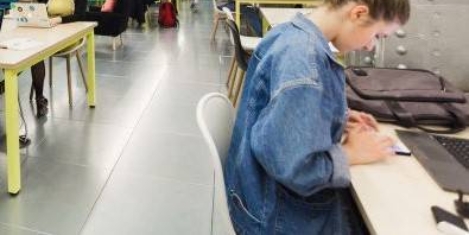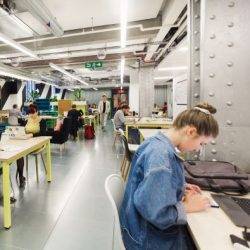July 12, 2017
Remote workers should not be out of sight, out of mind when it comes to wellbeing 0
 Line managers who supervise distributed or remote workers should look after their wellbeing and manage the risks they face, a new study recommends. Nearly half of all workers in Western Europe (129.5 million) spend at least some time working away from a main office or location, a number that seems to be increasing. With limited regular face-to-face contact, problems accessing safety and health resources, and having more than one place of work – where risks might be harder to predict and control – managing the health and safety of distributed workers presents significant challenges. Findings, advice, case studies and practical resources published by the Institution of Occupational Safety and Health (IOSH), which sponsored this work by researchers from the University of East Anglia (UEA), Kingston University London and Affinity Health at Work, show the vital roles managers have in helping assure their remote workers’ safety. Out of Sight, Out of Mind explores existing research, leadership styles and models, elements of management and communication, and direct contact with safety and health practitioners.
Line managers who supervise distributed or remote workers should look after their wellbeing and manage the risks they face, a new study recommends. Nearly half of all workers in Western Europe (129.5 million) spend at least some time working away from a main office or location, a number that seems to be increasing. With limited regular face-to-face contact, problems accessing safety and health resources, and having more than one place of work – where risks might be harder to predict and control – managing the health and safety of distributed workers presents significant challenges. Findings, advice, case studies and practical resources published by the Institution of Occupational Safety and Health (IOSH), which sponsored this work by researchers from the University of East Anglia (UEA), Kingston University London and Affinity Health at Work, show the vital roles managers have in helping assure their remote workers’ safety. Out of Sight, Out of Mind explores existing research, leadership styles and models, elements of management and communication, and direct contact with safety and health practitioners.















 Acas’ helpline receives many callers working on a zero hours, agency or self-employed arrangement who do so out of necessity rather than by choice, with some people feeling taken advantage of and unfairly excluded from employment rights. In its response to the Matthew Taylor review on modern employment practices the Acas Council looked at calls to its employment helpline, which revealed confusion and uncertainty around employment status and rights for those involved in the non-standard types of working. Prompted by evidence that these types of working arrangements are on the rise Acas has also published a new discussion paper on non-standard or ‘atypical’ forms of work, and identifies areas where good practice can be encouraged and improved. The discussion paper, Ain’t that typical? Everyday challenges for an atypical workforce, also reveals that the practice of ‘zeroing down’ workers’ hours is used in some workplaces to discourage staff from raising concerns or asserting rights.
Acas’ helpline receives many callers working on a zero hours, agency or self-employed arrangement who do so out of necessity rather than by choice, with some people feeling taken advantage of and unfairly excluded from employment rights. In its response to the Matthew Taylor review on modern employment practices the Acas Council looked at calls to its employment helpline, which revealed confusion and uncertainty around employment status and rights for those involved in the non-standard types of working. Prompted by evidence that these types of working arrangements are on the rise Acas has also published a new discussion paper on non-standard or ‘atypical’ forms of work, and identifies areas where good practice can be encouraged and improved. The discussion paper, Ain’t that typical? Everyday challenges for an atypical workforce, also reveals that the practice of ‘zeroing down’ workers’ hours is used in some workplaces to discourage staff from raising concerns or asserting rights.


 Britain’s most family friendly and flexible employers have been recognised in this year’s Top Employers for Working Families Awards. Now in their 8th year, the annual Top Employers for Working Families Special Awards from the UK’s work life balance charity cover 11 categories across a range of work life policies and practices. Four new sector-specific awards are being introduced this year for the private, public and third sectors; as well as a category for small employers. Sarah Jackson OBE, chief executive of Working Families, said: “In many ways, flexible working and family friendly working have never been more part of the bloodstream of British business. We had a record-breaking number of entries this year, showcasing a wealth of exciting approaches to creating agility in the workplace. Congratulations to all this year’s Top Employers for Working Families award winners, singled out because they offer leading flexible workplaces that support the grain of their employees’ lives. I look forward to working with them to make work work, for people, families and the economy, so that families thrive and business prospers.”
Britain’s most family friendly and flexible employers have been recognised in this year’s Top Employers for Working Families Awards. Now in their 8th year, the annual Top Employers for Working Families Special Awards from the UK’s work life balance charity cover 11 categories across a range of work life policies and practices. Four new sector-specific awards are being introduced this year for the private, public and third sectors; as well as a category for small employers. Sarah Jackson OBE, chief executive of Working Families, said: “In many ways, flexible working and family friendly working have never been more part of the bloodstream of British business. We had a record-breaking number of entries this year, showcasing a wealth of exciting approaches to creating agility in the workplace. Congratulations to all this year’s Top Employers for Working Families award winners, singled out because they offer leading flexible workplaces that support the grain of their employees’ lives. I look forward to working with them to make work work, for people, families and the economy, so that families thrive and business prospers.”














